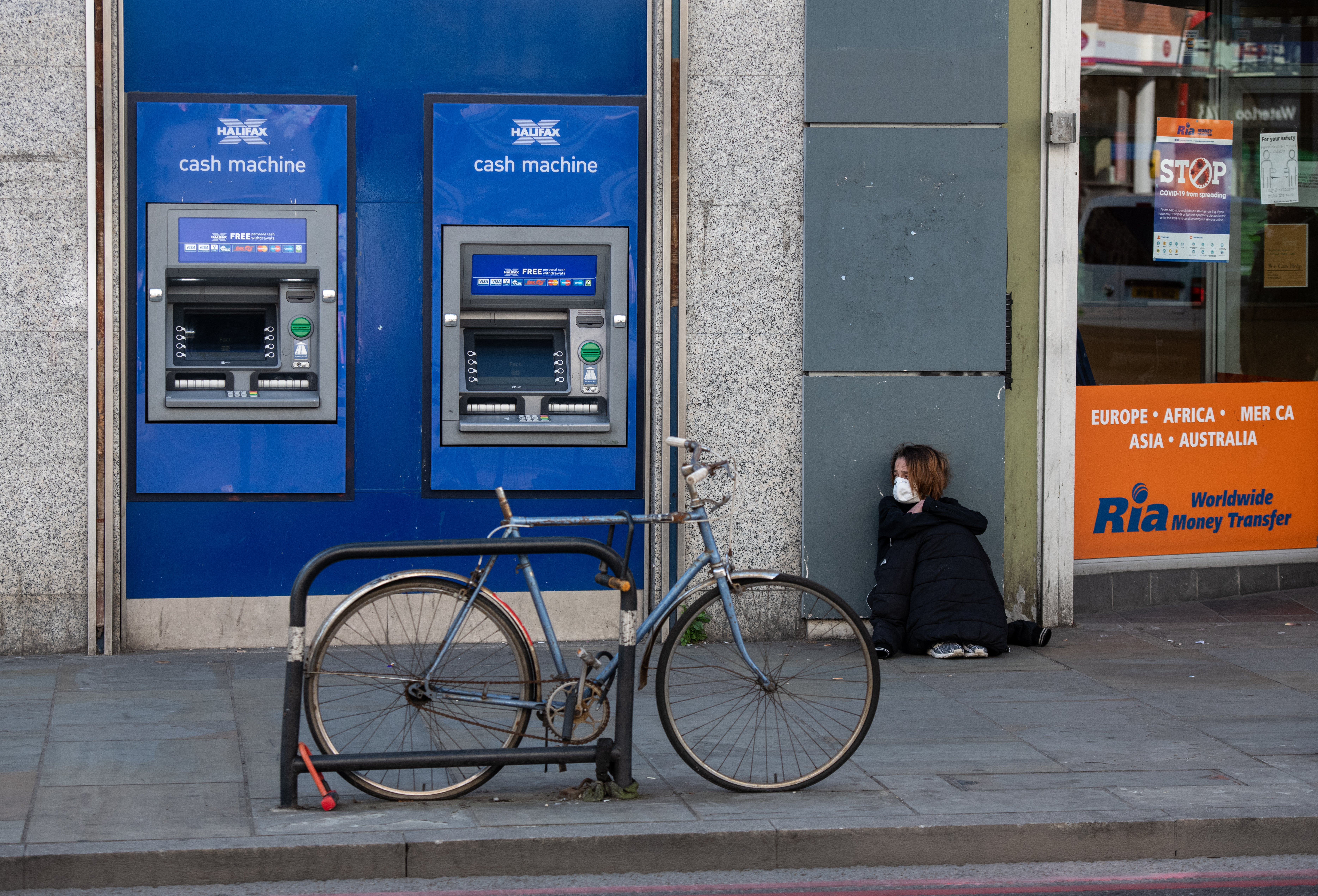Housing issues ‘more likely to harm women’s physical or mental health’
‘We told her it would delay my brain surgery. She made us homeless. It was horrific’ – Maya Oppenheim reports on the impact of insecure housing on women’s health


Women are far more likely than men to say that issues with their housing have had detrimental repercussions on their mental health during the pandemic, new research has found.
An exclusive poll conducted by Shelter, the UK’s leading housing charity, has revealed that almost half of women who rent privately feel stressed or anxious about housing problems or concerns, in comparison to a third of men.
Meanwhile, a quarter of women who rent privately say their housing issues or anxieties have made them physically sick, higher than the 19 per cent of men who say the same.
The research, carried out with YouGov, found that 25 per cent of women – compared with 18 per cent of men – who rent privately say that their housing problems have had a negative impact on their ability to work, their capacity to obtain work in the first place, or their ability to get a better job.
Polly Neate, the chief executive of Shelter, told The Independent that women are being disproportionately affected by problems caused by poor housing, and that single mums in particular are more likely to be affected.
She said: “Listening to the calls flooding in to our helpline, there’s no doubt that poor housing is harming people’s health – and women are bearing the brunt.
“With a scarcity of decent social homes, women, and especially single mums, are more likely to be pushed into poor housing.
“Balancing work and childcare can be hard for any parent, but when you’ve got to deal with expensive and unstable private renting, welfare cuts, and discrimination against people on benefits, it’s no wonder so many women say their housing situation is making them sick.”
She said that every day, women speak of the “huge stress” that stems from not knowing if they can pay their rent from month to month or if they will face eviction.
Denise, whose name has been changed to protect her identity, spoke of how her landlord made her homeless by delaying her move-in date by two weeks with just one day’s notice – despite knowing it would mean she had to postpone her surgery for brain cancer.
She told The Independent that the situation had had a huge impact on her physical and mental health.
She said: “We told her it would delay my brain surgery. She made us homeless. It was horrific when we moved in to think we were living in a house paying rent to someone who could be that horrible.
“We needed to be in the property because we needed to isolate before surgery. She refused to do any repairs.”
Denise said that in the week leading up to the surgery, which was delayed by a month, she was forced to do DIY and clean out the previous tenant’s stuff after she moved in.
“There were mouse holes everywhere,” she added. “There were several outside doors with gaps big enough to put a pencil through.”
Denise, who is having radiotherapy and chemo for stage three brain cancer, said it was “horrible” to have someone have control over her health – adding that she thought the landlord had been “very dishonest”.
“Even knowing I was going into brain surgery, she didn’t tell us there was planned building work, even though I’ve told her I’m having chemo so my immune system is compromised,” said Denise, who moved into the property in south London at the end of May. “It’s not safe for me to have people coming through the house while I’m vulnerable to Covid.”
She said that the landlord had exerted pressure on her and her partner to have highly disruptive building work, but that they had resisted, especially given that this would involve the kitchen, bathroom and utility room being ripped apart.
She said: “The bathroom and kitchen are rooms which need to be kept clean, especially if you’re immunocompromised. I just had my first round of chemo after having radiotherapy. Her treatment was the worst part of my whole time being ill.
“I’ve felt like a number rather than a human. The dealings with the landlord have been the biggest obstacle to my recovery.”
Denise explained that the proposed building work was partly to address structural damage, and that nobody had been sent to see if the building was safe, even though she had made requests for this to happen.
“We can’t afford to move, and the situation feels hopeless. I feel like they are not treating us with any decency or compassion, because we are on a low income,” she added.
The Independent reported recently that women are being locked out of the housing market because homes are unaffordable for them in every single English region.
An investigation carried out by the Women’s Budget Group and the Women’s Housing Forum discovered that, on average, women need over 12 times their annual salary to be able to buy a home in England. Men, on the other hand, need just eight times their annual salary. Average rents take 43 per cent of women’s median earnings while taking just 28 per cent of men’s, the report stated.
Susan, whose name has also been changed to protect her identity, rents a two-bedroom flat from her boss, and said that she has experienced serious physical and mental health problems since being served a no-fault eviction notice in April last year.
“They say being a hairdresser is a bit like being a counsellor. People tell you all their problems, and some of their secrets too,” the 53-year-old, who lost her hairdressing job when the Covid crisis hit, said. “But these days, as I snip away at my customers’ hair, I’m the one with the dark secret – that in just two months’ time I could be homeless and facing Christmas on the streets.”
Susan, who lives with her two adult daughters, said that if someone had told her she would be in this situation a couple of years ago, she would never have believed it, as she had a good job managing a hair salon in London and a secure place to live.
She said she has started grinding her teeth in her sleep so severely that one tooth has fractured and needed to be taken out, along with another, earlier this year. Susan said that she also now suffers from constant jaw pain.
Susan, who is awaiting her eviction verdict at a hearing in December, said she is now trying to find somewhere new to live, but because she claims some Universal Credit to cover her rent, she cannot find anyone willing to rent to her family.
She now works as a self-employed hairdresser, and both her daughters also work, which means they aren’t eligible for support from their council, Shelter explained.
“When I get into bed, place the plastic guards into my mouth, and turn off the light, that’s when the terror really hits,” Susan said. “Come Christmas me and my girls could be homeless. It feels so unfair that you can work all your life but not be able to keep a roof over your head. The pandemic has made life so much harder for so many people.”
Join our commenting forum
Join thought-provoking conversations, follow other Independent readers and see their replies
Comments





Bookmark popover
Removed from bookmarks